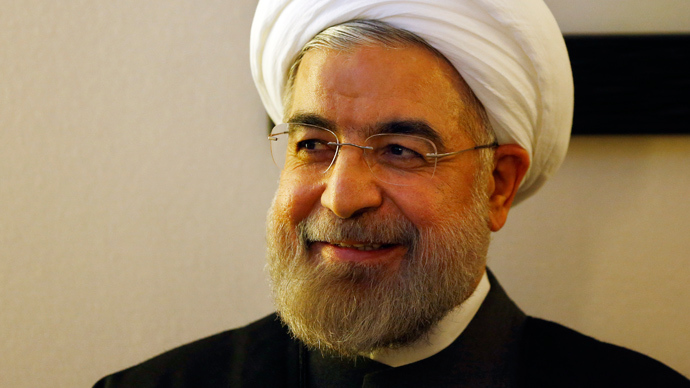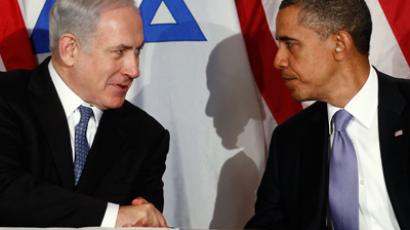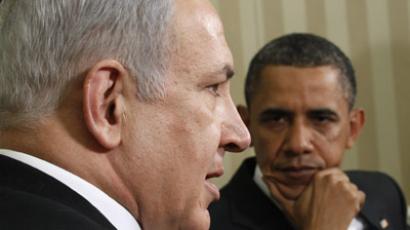Nuke talks collapsing as US opposes Iran’s pick for UN envoy

Washington and Tehran are again at odds after the United States Senate voted this week to ban the Iranian diplomat nominated to serve as his country’s ambassador to the United Nations from entering the US.
The Senate overwhelmingly agreed on Monday this week that Iran’s pick for UN envoy, Hamid Aboutalebi, shouldn’t be allowed to step foot in the US due to his alleged role in the 1979 hostage crisis at the American Embassy in Tehran. Aboutalebi denies being directly involved in the stand-off, during which 52 Americans were held hostage amidst high tensions between nations for 444 days.
Nevertheless, Sen. Ted Cruz (R-Texas) had no problem convincing his colleagues on Capitol Hill to speak up against what he called a “deliberate and unambiguous insult to the United States” courtesy of Iran.
The Republican-controlled House of Representatives is expected to soon vote in favor of the ban as well, but the effort is being considered largely a symbolic one since only the White House is authorized to approve such sanctions. US President Barack Obama’s press secretary, Jay Carney, has said the administration is indeed opposed to the nomination, however, and now the future of discussions between both America and Iran over the latter country’s alleged nuclear program is up in the air as the argument intensifies.
Renewed tensions between the rival countries come at a point in which leadership in both the US and Iran has only now opened up to one another about Iran’s nuclear program. A conversation last September between Pres. Obama and Iran’s newly elected President Hassan Rouhani was reportedly the first time that heads of either country have spoken in more than 30 years, and afterwards Obama said “I believe we can reach a comprehensive solution.”
“Rouhani has indicated that Iran will never develop nuclear weapons,” Obama said after last year’s surprise phone call, and hailed it as a “major step forward in a new relationship between the United States and the Islamic Republican of Iran.”
Only a few months later, however, White House secretary Carney now says that the administration finds the nomination of Aboutalebi “extremely troubling” and that “The US government has informed the government of Iran that this potential selection is not viable.”
“In our viewpoint, the ambassador who has been introduced is qualified for the position and has had important diplomatic posts in European countries and Australia and has had a good, effective and positive performance during his past [diplomatic] missions,”The Guardian quoted Iranian foreign ministry spokeswoman Marzieh Afkham as responding, according to Iranian television.
“Our envoy is qualified for that position,” Bloomberg News quoted Afkham as saying. “We have chosen our ambassador.”
Aboutalebi, 56, has previously served as Iran’s ambassador to three countries and the European Union, but is perhaps most infamously known in America for his alleged role within Muslim Students Following the Imam's Line — the group who occupied the US Embassy in Tehran during the year-long stand-off at the end of the administration of then-President Jimmy Carter. According to the Guardian, Aboutalebi says his role within the organization was one limited to “translation and negotiation.”
But American politicians on both the left and the right aren’t convinced, and are now insisting that Iran invites someone else to serve the country’s role as ambassador to the UN, even if talks between nations concerning the Iranian nuclear program have progressed to a point previously unseen.
“Given the larger strategic threats to the United States and our allies, represented by Iran’s nuclear ambitions, this is not the moment for diplomatic niceties,” Cruz said this week, according to the Guardian. “I am proud to join my colleagues on both sides of the aisle on this national security issue that transcends political parties,” he said prior to Monday’s vote.
“We ought to close the door on him, and others like him, before he even comes to the United States, and that’s exactly what this bill will do,” Sen. Charles Schumer (D-New York) added of the Cruz-led bill he voted in favor of.
"We think the process is running its diplomatic course and until we receive a formal response from official channels, we do not consider the matter finished," Afkham told US media from the Iranian ministry this week, according to the Guardian.
On Tuesday, Mohammad Hassan Asafari — a member of the Iranian Parliament's National Security and Foreign Policy Commission — also spoke up to oppose Washington’s latest remarks.
"The US Senate action to bar Aboutalebi's entry as Iran's designated ambassador at the UN is sheer interference in the internal affairs of the UN," Iran’s Fars News quoted Asafari as saying. “The Americans are not entitled to the right to oppose the entry of the Islamic Republic of Iran's representative at the UN and the US Senate approval is illegal."















